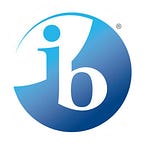How Singapore is leading the way in education
What we can learn from the country that tops the international education league tables
Singapore may be small, but it has overtaken much larger countries in the world to rank as number one in education.
It came first in the latest OECD Programme for International Student Assessment (PISA) tests — which assess reading, mathematics and science — and the Trends in International Mathematics and Science Study.
The country focuses heavily on education as it is seen as a crucial means for economic competitiveness and social cohesion; and it invests heavily in its teachers.
“What is so unusual about Singapore is the amount the government has invested in education at all levels — primary, secondary and post secondary”
“In isolation, these factors are not that unique to Singapore,” says Dr Jason Tan Eng Thye, Associate Professor of Policy and Leadership Studies at the National Institute of Education, in Singapore. “However, what is so unusual about Singapore is the amount the government has invested in education at all levels — primary, secondary and post secondary,” adds Tan. “Education is the second largest item in the national budget each year and it’s been that way for more than 50 years.”
Investment in teachers
Much of this money is spent on teachers’ professional development. This helps raise the status of teaching. Trainees receive full teacher salaries and employee benefits, which attracts the best graduates. In addition, all teachers are trained at the National Institute of Education — a consistent approach that ensures quality control.
Head teachers rotate between schools every six to seven years, too.
This allows them to be challenged by different school environments at regular intervals, instead of becoming stagnant. “More schools also benefit from being exposed to a fresh set of ideas,” says Tan.
“Singapore is a small, but highly urbanized country, and that’s why it’s easy for the Ministry of Education to implement policies that maintain a high quality, compared to many larger countries.”
Parental involvement
Parents also play a crucial role. “All schools regularly engage with parents — through parent sessions or workshops — to help them better understand the curriculum. Every teacher has to be available to their students’ parents, whether it’s on email or WhatsApp, for example,” says Tan.
But, the amount of time and resources that parents spend helping
their children can lead to wide disparities, he adds. Many advantaged families supplement the education system with private tuition and other programmes.
The Ministry of Education has put measures in place to address these concerns, such as legislation to protect students with additional learning needs; secondary schools can no longer use ‘general academic ability’ as an admission criterion; and secondary schools can reserve up to 20 per cent of their places for students with non-academic talents.
Too much pressure?
Singapore’s international success in tests is also due to the country’s cultural mindset that academic excellence is fundamental to future success. But there have been concerns that too much emphasis is placed on academic subjects and not enough on social emotional learning (SEL). This can lead to stressed-out children who are eager to succeed.
The Ministry of Education introduced ‘21st Century Competencies’
to address this, which includes SEL initiatives and cross-cultural understanding activities.
It wants to make sure that schools develop these competencies in lessons. “But, because of the overriding importance of examination success, in terms of post-secondary opportunities, jobs and income levels, the heavy focus on academia remains a problem,” says Tan.
“It’s an ongoing debate for the country. Singapore hasn’t yet achieved that optimum balance.”
Originally published in IB World Conference Special, March 2018 for the
IB Global Conference, Singapore.
